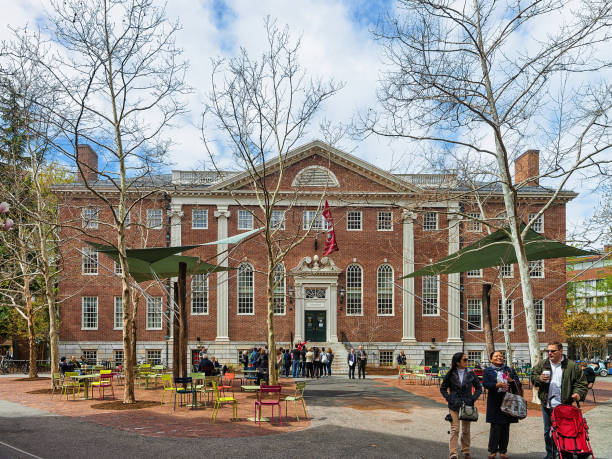Harvard in the Crosshairs: Free Speech, Federal Pressure, and the Palestine Question
Input
Modified
Harvard defends its academic autonomy amid Palestine controversy. The Trump administration and pro-Israel donors exert mounting pressure. Civil rights advocates warn of a dangerous precedent for academic freedom.
In the storm of global politics, even the world’s most prestigious universities are finding themselves on the frontlines. As the U.S. wrestles with ideological divides under the Trump administration, Harvard has become an unlikely battleground for the broader debates over academic freedom, civil rights, and financial survival. At the heart of the controversy lies a single question: can universities uphold intellectual independence while navigating political and donor pressures on all sides?

When Free Speech Meets Federal Oversight
In recent months, Harvard University has become the epicenter of an intensifying clash between academic freedom and political power. This storm came to a head with the release of a special issue of the Harvard Educational Review spotlighting Palestinian voices, narratives, and scholarship. Featuring poetry, personal essays, and research articles, the issue sought to explore the experience of displacement and decolonial education through a Palestinian lens. Supporters heralded it as a necessary act of inclusion, but it has not come without consequence.
Critics, including conservative policymakers and pro-Israel advocacy groups, have accused Harvard of politicizing scholarship. In response, the Trump administration has threatened to reevaluate federal funding, citing what it alleges is antisemitic speech masquerading as academic critique. The situation is a flashpoint in a broader culture war unfolding across U.S. campuses, where ideological boundaries, funding imperatives, and civil liberties are increasingly at odds.
Campus Strategy or Calculated Symbolism?
While Harvard publicly defends its editorial independence, internal voices have raised questions about the university’s motivations. Some faculty and students suggest that the Palestine-focused publication may have been a strategic act, less about advocacy and more about asserting control over its research agenda amid mounting federal scrutiny. The argument is that Harvard, embroiled in a high-stakes dispute with the Trump administration, is using the Palestinian cause as a symbolic stand for institutional autonomy.
This suspicion isn’t without precedent. Universities have long used high-profile issues to shape public perception and consolidate internal authority. In this case, publishing Palestinian scholarship serves a dual purpose: responding to growing calls for inclusion from student activists, while signaling resistance to political interference. Critics argue that this selective support undermines the authenticity of the gesture, reducing genuine struggles to institutional bargaining chips.
An opinion piece in Al Jazeera captured this tension, alleging that while Harvard talks up its commitment to free speech, it has historically suppressed pro-Palestinian voices through administrative censure, vague speech codes, and donor appeasement. From this vantage point, the recent issue of Harvard Educational Review is less a turning point than a tactical concession; a calculated move to realign Harvard's image without altering its deeper structures of power.

Billions at Stake: Between Trump and Donor Agendas
The controversy takes on greater urgency given the immense financial pressures at play. According to a June report by Palestine Legal, the Trump administration is leveraging federal funding as a tool to enforce campus speech codes aligned with its political agenda. At the same time, Harvard faces significant pressure from influential Jewish donors who expect the university to toe a line supportive of Israel. These parallel pressures have created a climate where every editorial decision, speaker invitation, or student protest carries million-dollar implications.
This dynamic puts university administrators in an impossible position. Defending free expression and diverse scholarship can be perceived as a form of political opposition. On the other hand, compliance with external pressures risks violating civil rights protections and the university's own stated values. The threat isn’t just to Palestinian students or scholars, it’s to the very foundation of academic independence.
Civil liberties organizations argue that Harvard’s dilemma is indicative of a broader trend: universities caught between partisan agendas and philanthropic expectations. As institutions become more reliant on political and donor funding, their ability to serve as neutral grounds for inquiry and dissent is steadily eroding. The Palestine case is simply the most visible battleground in a war over what, and who, can be safely studied, spoken, or published in the American academy.
As Harvard navigates this storm, the implications reach far beyond Cambridge. Across the country, faculty and students are closely watching to see whether the institution will stand firm in its support of marginalized voices or buckle under pressure. With billions of research dollars at stake, and national political forces increasingly eager to influence campus discourse, the stakes are enormous.
Just as the Trump administration's withdrawal from UNESCO signaled a retreat from global cooperation, its approach to university governance signals a domestic retrenchment, a push to reshape institutions in line with ideological conformity. For Harvard, the Palestinian question is no longer a matter of editorial policy; it is a test of the university’s core identity.
And in this crucible of politics, funding, and free speech, the future of American higher education is being rewritten, not just in policy documents or budget lines, but in the pages of its journals and the protests of its students.














Comment